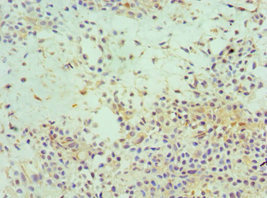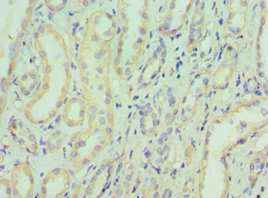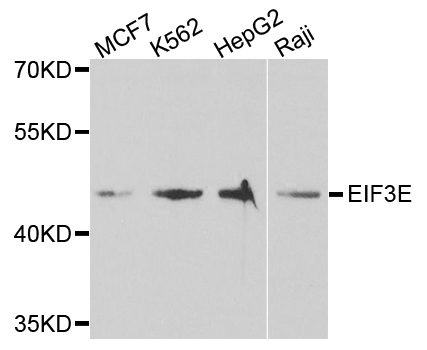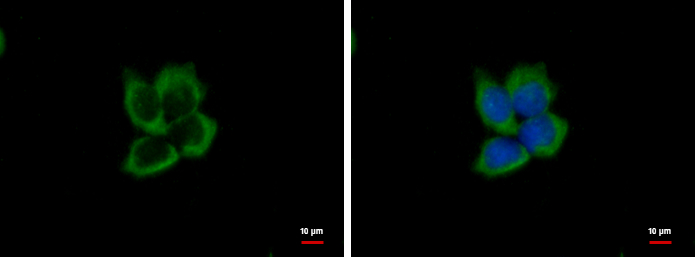
Immunohistochemistry of paraffin-embedded human breast cancer using CSB-PA007534ESR1HU at dilution of 1:100
EIF3E Antibody
CSB-PA007534ESR1HU
ApplicationsELISA, ImmunoHistoChemistry
Product group Antibodies
ReactivityHuman
TargetEIF3E
Overview
- SupplierCusabio
- Product NameEIF3E Antibody
- Delivery Days Customer20
- ApplicationsELISA, ImmunoHistoChemistry
- CertificationResearch Use Only
- ClonalityPolyclonal
- ConjugateUnconjugated
- Gene ID3646
- Target nameEIF3E
- Target descriptioneukaryotic translation initiation factor 3 subunit E
- Target synonymsEIF3-P48, EIF3S6, INT6, eIF3-p46, eukaryotic translation initiation factor 3 subunit E, eIF-3 p48, eukaryotic translation initiation factor 3 subunit 6, eukaryotic translation initiation factor 3, subunit 6 (48kD), eukaryotic translation initiation factor 3, subunit 6 48kDa, mammary tumor-associated protein INT6, murine mammary tumor integration site 6 (oncogene homolog), viral integration site protein INT-6 homolog
- HostRabbit
- IsotypeIgG
- Protein IDP60228
- Protein NameEukaryotic translation initiation factor 3 subunit E
- Scientific DescriptionComponent of the eukaryotic translation initiation factor 3 (eIF-3) complex, which is required for several steps in the initiation of protein synthesis. The eIF-3 complex associates with the 40S ribosome and facilitates the recruitment of eIF-1, eIF-1A, eIF-2:GTP:methionyl-tRNAi and eIF-5 to form the 43S preinitiation complex (43S PIC). The eIF-3 complex stimulates mRNA recruitment to the 43S PIC and scanning of the mRNA for AUG recognition. The eIF-3 complex is also required for disassembly and recycling of post-termination ribosomal complexes and subsequently prevents premature joining of the 40S and 60S ribosomal subunits prior to initiation. Required for nonsense-mediated mRNA decay (NMD); may act in conjunction with UPF2 to divert mRNAs from translation to the NMD pathway. May interact with MCM7 and EPAS1 and regulate the proteasome-mediated degradation of these proteins.
- ReactivityHuman
- Storage Instruction-20°C or -80°C
- UNSPSC41116161








